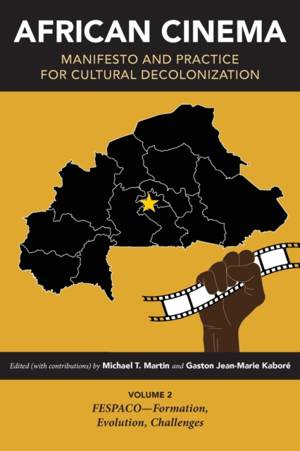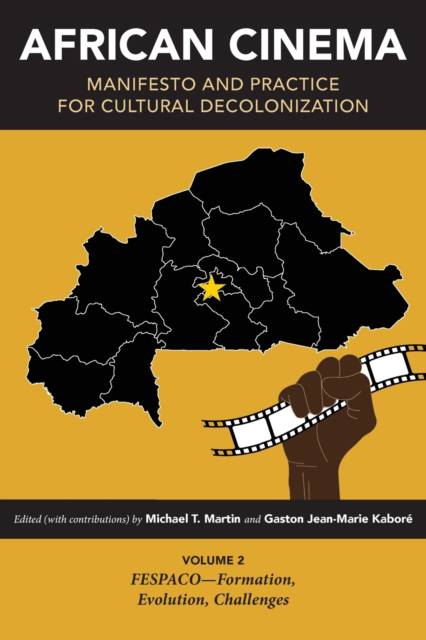
- Retrait gratuit dans votre magasin Club
- 7.000.000 titres dans notre catalogue
- Payer en toute sécurité
- Toujours un magasin près de chez vous
- Retrait gratuit dans votre magasin Club
- 7.000.0000 titres dans notre catalogue
- Payer en toute sécurité
- Toujours un magasin près de chez vous
African Cinema
Manifesto and Practice for Cultural Decolonization: Volume 2: FESPACO-Formation, Evolution, Challenges
Description
Challenging established views and assumptions about traditions and practices of filmmaking in the African diaspora, this three-volume set offers readers a researched critique on black film.
Volume Two of this landmark series on African cinema is devoted to the decolonizing mediation of the Pan African Film & Television Festival of Ouagadougou (FESPACO), the most important, inclusive, and consequential cinematic convocation of its kind in the world. Since its creation in 1969, FESPACO's mission is, in principle, remarkably unchanged: to unapologetically recover, chronicle, affirm, and reconstitute the representation of the African continent and its global diasporas of people, thereby enunciating in the cinematic, all manner of Pan-African identity, experience, and the futurity of the Black World.
This volume features historically significant and commissioned essays, commentaries, conversations, dossiers, and programmatic statements and manifestos that mark and elaborate the key moments in the evolution of FESPACO over the span of the past five decades.
Spécifications
Parties prenantes
- Editeur:
Contenu
- Nombre de pages :
- 660
- Langue:
- Anglais
- Collection :
Caractéristiques
- EAN:
- 9780253066251
- Date de parution :
- 08-08-23
- Format:
- Livre broché
- Format numérique:
- Trade paperback (VS)
- Dimensions :
- 152 mm x 229 mm
- Poids :
- 870 g

Les avis
Nous publions uniquement les avis qui respectent les conditions requises. Consultez nos conditions pour les avis.





